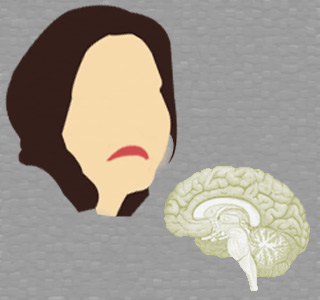
It is to be believed that the drug is particularly for mild-to-moderate and severe Alzheimer’s disease. Purportedly, people with mild cognitive impairment experience memory problems far superior than the likely problems resulting from normal aging. But they do not show other symptoms of Alzheimer’s disease like difficulty in completing daily activities.
For the purpose of evaluating this criterion, a three-year study was conducted with 756 people between the age group of 55 and 91 who suffered from mild cognitive impairment. Apparently, this disease refers to a shift phase between cognitive rejection of normal aging and Alzheimer’s disease. It is to be believed that through a test that helped in measuring the severity and intensity of depressive symptoms, 208 participants were detected with depression. It was also said that for every one-point increase on the test, a participant’s risk of developing Alzheimer’s went up by three percent.
“Our longer-term findings add to the body of evidence that suggests depression is a major risk factor for Alzheimer’s disease,” said Po H. Lu, an assistant professor of neurology and a member of the UCLA Mary S. Easton Center for Alzheimer’s Disease Research. “Since the drug donepezil has been shown to improve the behavioral symptoms of Alzheimer’s disease, our study also tested whether the drug would delay the progression to Alzheimer’s disease in people with memory problems.”
Study participants were believed to have been given vitamin E, donepezil or a placebo pill. It was to be believed that the experts found that 11 percent of the participants taking donepezil developed Alzheimer’s disease after 1.7 years, in contrast to the 25 percent of the participants taking vitamin E or placebo. On the other hand, it was seen that 14 percent of the participants taking donepezil developed Alzheimer’s disease after 2.2 years in comparison to 29 percent of the participants taking vitamin E or placebo. Supposedly, donepezil had a slight effect on the participants who were not depressed.
This study has been published in the medical journal of the American Academy of Neurology.
